Delisting IRGC ‘Asinine’ – Says Iran Nuclear Deal Critic
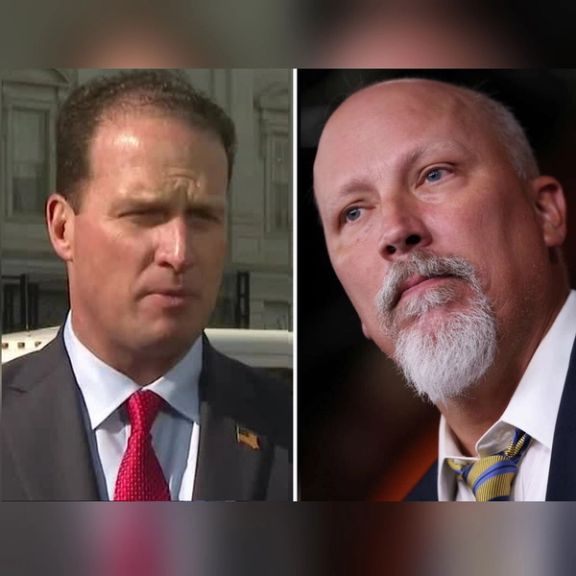
The Biden administration and the Democrats are doing everything to prop up Iran “in ways that undermine national security of US and Israel,” Republican congressman Chip Roy said Monday.

The Biden administration and the Democrats are doing everything to prop up Iran “in ways that undermine national security of US and Israel,” Republican congressman Chip Roy said Monday.
The Texas representative told Iran International’s correspondent in Washington that removing Iran’s Revolutionary Guards (IRGC) from the list of ‘Foreign Terrorist Organizations’ (FTO) would be “a foolish, wrong-headed and complete asinine policy.” August Pfluger, another Texas representative, told Iran International “it’s very important that we stand strong against the largest state sponsor of terrorism.”
The IRGC was added in 2019 by President Donald Trump to the ‘FTO’ list, the only example of a country’s armed forces being included. Pfluger argued that the IRGC should not be removed without Congressional approval, although it was added by Trump on presidential authority.
“We need to have a say,” Pfluger told our correspondent Arash Alaei in Washington. “We need to have our voices heard. So that the administration doesn't do something that's not listening to Congress, which is what we've been pushing for.”
The question of removing the IRGC as a ‘FTO’ is reportedly at issue in Vienna talks to revive the 2015 Iran nuclear deal, the JCPOA (Joint Comprehensive Plan of Action). Iran Monday said Washington’s failure to take political decisions in facing down domestic JCPOA opponents, including Republicans raising legislative hurdles like requiring Congressional support for IRGC delisting, had led to a delay in agreeing JCPOA arrival.

The chairman of Central Bank of Iran (CBI) announced Monday that in the past one year it provided 57 percent more foreign currency to people and businesses.
Ali Salehabadi, appointed by President Ebrahim Raisi last year to head the CBI, said on Monday that from March 21, 2021, until March 20, 2022 (the Iranian year 1400) the government dispensed $57 billion to individuals and businesses, a 57-percent rise compared with the previous 12 months.
The foreign currency market is largely controlled by the government, except a black market, where people can buy and sell hard currencies. The size of this unofficial market is hard to estimate, since transactions are off the books and deliberately hidden.
In Iran’s centralized economy and banking system the government has been controlling the large transactions, through evolving regulations in the past 43 years since the Islamic Republic was established.
Businesses can always buy dollars in the black market or through official channels after receiving the necessary approvals, but the government has to inject the hard currency, either through its official banking system or the black market, to finance imports and prevent a run on the national currency.
If the figure Salehabadi announced is true, it means the Islamic Republic had at least $20 billion more at its disposal in the past 12 months for making available $57 billion for imports and other needs, such as foreign travel and stipends for students abroad – not mentioning capital flight from the country.
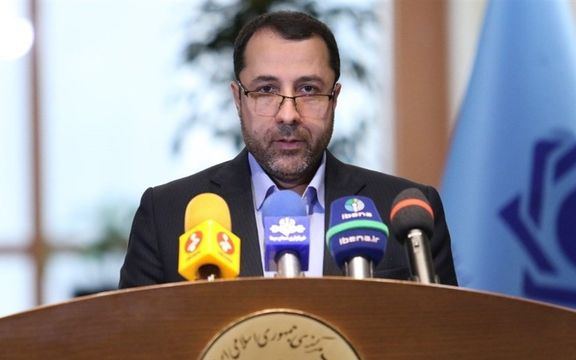
Part of the available hard currency invariably leaves Iran in the form of individuals taking their money into safer markets, such as Turkey, the United Arab Emirates or Western countries.
Again, if Salehabadi’s claim is true, it means Iran earned $20 billion more during March 2021-March 2022, presumably from higher oil exports, banned by United States’ sanctions that are increasingly circumvented by Tehran.
There have been numerous reports since late 2020 that Iran has been selling more oil, clandestinely, mainly to China at cheaper prices. Iranian shipments have increased from as low as 200,000 barrels per day in 2019 to as high as more than one million barrels in late 2021.
The question is why the US has not tried harder to enforce its sanctions.
President Joe Biden decided to rejoin the 2015 Iran nuclear agreement that his predecessor abandoned in May 2018, which meant he would lift sanctions if an agreement could be worked out with Iran to mutually revive the deal known as the JCPOA. One of his first foreign policy actions was the start of multilateral talks in Vienna a year ago, and it appears that the administration decided not to go out of its way to enforce the economic sanctions.
China and others might have also calculated that Washington would not make a fuss about sanctions violations amid nuclear talks, which also involved Moscow and Beijing.
The result has been considerably higher oil income for Iran, that some argue has made Tehran confident enough not to have agreed to a deal in Vienna after 12 months of talks, and lately demanding more concessions from the United States.
Although more dollars flowed into Tehran’s coffers in recent months, the Iranian currency has remained weak, having lost its value eightfold since the beginning of 2018. One US dollar now buys 270,000 rials, compared with 34,000 in 2017, before the US imposed sanctions.
The reason for a lack of improvement for the rial, or in the case of a 40-percent annual inflation rate, could be the depth of the economic crisis gripping the country. A mere $20 billion cannot quickly make a dent in the inefficient economy, burdened by tens of billions of dollars of energy subsidies energy and military, ideological overhead.
Despite the additional income, Iran is by no means out of the woods. Any tightening of sanctions can erode the gain in oil exports and return the situation to the pressures of 2019.
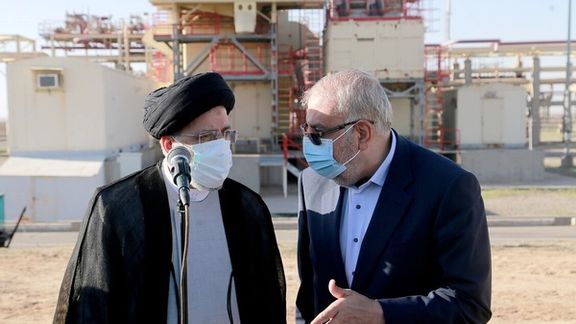
President Ebrahim Raisi and his oil minister this week repeated claims that Iran has increased oil output and exports amid continuing United States sanctions.
President Ebrahim Raisi in a speech on Thursday declared that oil exports have reached the pre- 2018 levels, when former US president Donald Trump withdrew from the nuclear deal with Iran and began imposing sanctions on Iranian oil exports.
If Raisi meant that Iran is shipping two million barrels a day like it did in 2017, it would mean observers of the global oil trade have underestimated Iran’s illicit exports by almost 100 percent. Various estimates in recent months have ranged between 750,000 to one million barrels a day.
Raisi who is under a lot of pressure to improve the battered economy is using media under his government’s control and every public speech to claim economic successes.
The policy of claiming economic successes could also be a tactic to persuade the United States that its sanctions are ineffective and Iran can afford not to sign a nuclear agreement negotiated in Vienna if Washington rejects its demands.
Petroleum Minister Javad Owji also told Shana news agency on the same day that “the capacity of oil production has returned to pre-sanction period” reaching to more than 3.8 million barrels per day.
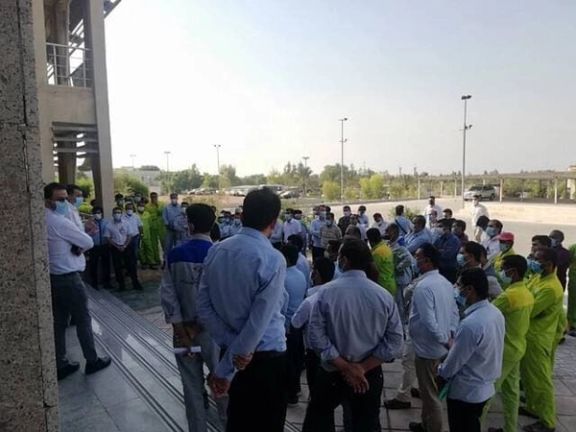
The key word in Owji’s remark is ‘capacity’ which could substantially differ from actual production. This claim was made earlier by other oil ministry officials. He did not give an exact figure about exports and it is not clear if president Raisi mixed up ‘production’ with ‘exports’ when he said Iran has reached the pr-sanctions level.
Domestic critics of the government have pointed out that the president’s claims of more oil revenues and economic growth are simply due to higher oil prices in recent months, and not any breakthrough in Iran’s economic fundamentals.
Average oil price in the first 7 months of 2021 was around $60 per barrel, while in the following 6 months (August-February) it was about $80. Raisi assumed office in the beginning of August. Following Russia’s invasion of Ukraine on February 24, prices shoot up well above $100.
During Donald Trump’s presidency, Iran’s clandestine oil shipments hovered around 200-300 thousand barrels pd but they picked up right before the US presidential election in November 2020 and steadily increased in 2021.
President Joe Biden’s administration apparently decided not to strongly enforce the sanctions, violated mainly by China, which has been buying the bulk of Iranian shipments.
The director of National Iranian Oil Company, Mohsen Khojasteh when asked a question by local media on Friday if exports increased because of lax enforcement by the United States, insisted that Iran was able to increase production capacity and exports despite sanctions.
Khojastreh claimed that the oil ministry made a $700 million investment since Raisi assumed office and revived production at 750 oil wells. He added that export of oil and other hydrocarbon products increased because Iran was able to find new customers but did not provide any details. Tehran regards such information as strategic secrets.
More exports and higher prices, however, have done little to visibly improve Iran’s economic indicators. Inflation continues to hover around 40 percent, with prices for food and other essential goods increasing to unprecedented levels. The government struggles to pay salaries and pensions, with no major proven investments in infrastructure, beyond general declarations of accomplishments.
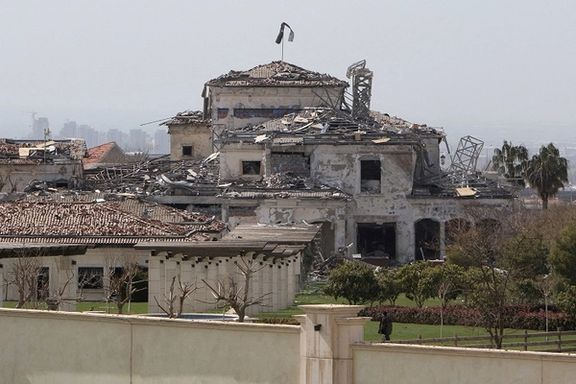
Two Republican senators have joined a growing list of US lawmakers in calling for an end to the nuclear talks with Tehran following an Iranian missile attack in northern Iraq earlier this month.
“It should be a deal-breaker rather than a ‘game, set, match’. There should be no negotiations”, Senator Tommy Tuberville of Alabama told Iran International on Wednesday.
Also speaking to the television station, Senator Josh Hawley of Missouri, expressed hope that “a deal with Iran…would never happen”, and said US sanctions against Iran must not be “lifted or changed in any way”.
In a major escalation of tensions in the Middle East, ballistic missiles on March 13 landed near the US consulate building in Erbil.
Iran’s Islamic Revolution Guards Corps (IRGC) claimed responsibility for the strikes, saying it targeted Israeli "strategic centers" in the capital of Iraq's semi-autonomous Kurdish region.
In addition to the Erbil attack, Iran-backed Houthi rebels launched a fierce drone and missile attack on Saudi Arabia’s oil installation in Jeddah on March 25 that ignited a large blaze. US National Security Advisor Jake Sullivan condemned the attack blaming Iran for supplying weapons to the Houthis fighting a seven-year war against A Saudi-led coalition.
The attack came as negotiations have taken place in Vienna over the past months to bring back the landmark agreement that Tehran signed with the United States, Britain, France, Germany, Russia, and China in 2015, allowing for the easing of sanctions against Iran in return for curbs on the country’s nuclear program.
Then-President Donald Trump unilaterally pulled the United States out of the deal in 2018, and started reimposing crippling economic sanctions against Iran, while Tehran began rolling back on most of its commitments under the accord.
Tuberville said the Erbil missile attack “sending a false message to us, obviously. If this group (the IRCG) is acting this way now, how they’re going to act after, if we do happen to sign a deal”.
"The Biden administration's idea that it somehow is a good thing to loosen the screws on Iran and to allow them once again to have the chance to run rampant in the region is absolutely, diametrically wrong," according to Hawley,
In response to the Erbil attack, the US administration on Wednesday enacted new sanctions against an Iran-based person and his companies for procuring parts to help Iran's ballistic missile program.
"Iran's ballistic missile-related activities continue to destabilize the Middle East region, and the United States will continue to use every tool at our disposal to disrupt them," Secretary of State Antony Blinken said in a statement.
Tehran on Thursday condemned the new sanctions as a further violation of the 2015 UN Security Council resolution 2231 that enshrined the landmark nuclear agreement, JCPOA, between Iran and World powers. The JCPOA in fact removed international sanctions imposed on Iran for its nuclear program and left other sanctions in place.
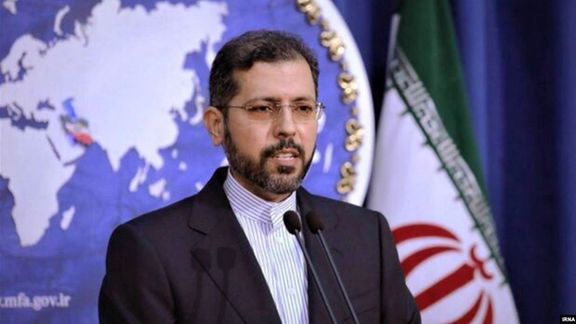
Iran accused the United States on Thursday of violating a United Nations resolution after Washington sanctioned actors for helping Tehran’s missile program.
UN Security Council Resolution 2231 enshrined the 2015 nuclear deal that Iran and world powers have sought to revive through negotiations in Vienna for the past 12 months.
The US continues to violate a Security Council resolution that enshrined the 2015 nuclear deal (JCPOA), despite its claims of wanting to revive the pact, foreign ministry spokesman Saeed Khatibzadeh said.
On Wednesday, the United States applied sanctions on a procurement agentin Iran and his companies for their role in supporting Tehran's ballistic missile program. The JCPOA removed nuclear-related sanctions and left others in place.
The move came after a destructive missile and drone attack by Iran-backed Houthi forces on Saudi oil installations last week. The US accuses Iran of supplying drones, missiles and other weapons to Houthis.
"This move is another sign of the US government's malice towards the Iranian people, as it continues the failed policy of maximum pressure against Iran," the spokesperson added.
The talks were close to agreement in early March until Russia made last-minute demands of the United States.
The White House said on Wednesday that the new sanctions would not derail nuclear talks but will remain in place regardless of whether an agreement is reached.
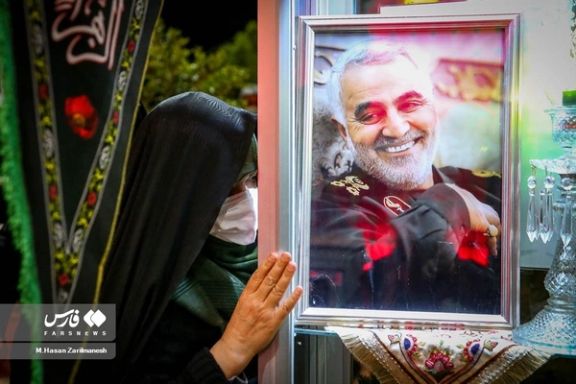
Washington wants Iran to stop threats against US officials for the killing of Ghasem Soleimani if it wants its Revolutionary Guard to be removed from a terrorist list.
The United States will not remove the Revolutionary Guard (IRGC) from its list of Foreign Terrorist Organizations (FTO) unless Tehran pledges to cease its death threats against US officials for the killing of the IRGC's Ghasem Soleimani, a source close to the Vienna talks has told Radio Farda, the Persian service of the US government funded Radio Free Europe.
Iran's Supreme Leader Ali Khamenei, President Ebrahim Raisi, and IRGC officials have repeatedly vowed to avenge Soleimani's death.
“Trump and others like him will be forgotten and lost in the dustbin of history, of course after paying for their crimes in the world," Khamenei said on January 1, two days before the anniversary of Soleimani's killing in Baghdad in January 2020 on former US President Donald Trump's orders.
In a televised speech two days later, Raisi said that "Muslims" would take revenge" if Trump and former Secretary of State Mike Pompeo were not "tried in a fair court for the criminal act of assassinating Soleimani."
The source who spoke on condition of anonymity told Radio Farda that Tehran's last-minute demand for delisting the IRGC is currently the biggest hurdle in the way of an agreement to restore the 2015 Iran nuclear deal, Joint Comprehensive Plan of Action (JCPOA).
Soleimani, who was Iran’s top military and intelligence operator outside its borders, was in charge of supporting and organizing militant proxy forces, including the Lebanese Hezbollah and Iraq Shiite militia groups that have repeatedly attacked US forces.
The European Union's top diplomat Josep Borrel said Monday that talks were stuck by Tehran due to new demands that weren’t part of the JCPOA, such as the status of the IRGC, after a hurdle thrown by Russia was overcome. "It’d be a shame not to reach some sort of an agreement when we're so near to reaching one,” Borrel told the European Parliament
The source also told Radio Farda that the US has asked Iran to pledge that it will not threaten and harm US citizens and facilities in the region.
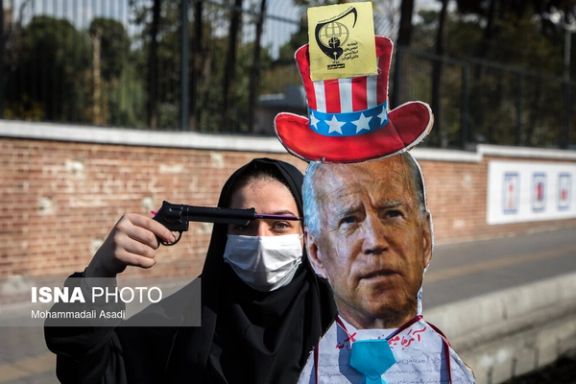
According to Radio Farda's source, Iranian Foreign Minister Hossein Amir-Abdollahian's remarks in an interview Saturday referred to the US condition of not pursuing revenge for Soleimani's killing. "When we say IRGC we mean General Ghasem Soleimani," Amir-Abdollahian said in the interview.
"Regarding the IRGC, what is important is to acknowledge the standing and the central role of the IRGC in our security and defense. [Negotiators] relayed some messages to the US [in this regard]," Amir-Abdollahian said in the same interview.
Trump administration officials have strongly opposed the possibility of the IRGC's delisting. In a joint statement last week, three former senior officials, including former Secretary of State Mike Pompeo, former national security adviser Robert O’Brien, and former director of national intelligence John Ratcliffe said delisting the IRGC would be “a dangerous capitulation" and "a denial of the basic reality that the IRGC's core mission is to spread terror."
“The pursuit of an ill-conceived ‘deal’ should not compel American leaders to acquiesce to the demands of a terrorist regime to deny the truth. American lives are at stake, and this is a time to project strength, not weakness," they said in their statement shared with Axios.